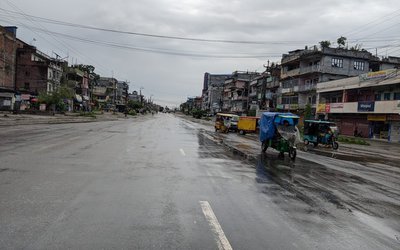
After two years of Taliban rule in Afghanistan, women and girls pay the price.
The Taliban have kept a struggling economy afloat and improved domestic security, but they have also introduced a slew of bans on Afghan girls and women, barring them from parks, gyms, universities, and jobs at non-governmental groups and the United Nations
Tuesday marks two years since the Taliban regained power in Afghanistan. Its restrictions on women's rights have deepened and the economy remains underdeveloped.
The Taliban seized the capital Kabul on August 15, 2021, while US troops were withdrawing from the country. The Islamist group later established an interim government and has been ruling the country in line with its own interpretation of Islamic law.
Under the Taliban's rule, girls are barred from attending secondary schools, and female staff members of the United Nations and non-profit organizations are prohibited from going to work. Last month, the group also announced a ban on women's beauty salons.
The United Nations, among others, has repeatedly called on the Taliban to improve the situation, but the group has not accepted that request. No country has recognized the Taliban as a legitimate government.
Afghanistan faces a faltering economy and an acute shortage of food, as support from outside the country has stalled. The UN says more than two-thirds of the country's population need humanitarian aid.
Acting Foreign Minister Amir Khan Muttaqi from the Taliban government held talks with senior US State Department officials in July. He called for the lifting of sanctions imposed by the United States, which include a freeze on the central bank's reserves.
The Taliban also calls for recognition of the interim government. But the international community urges the group to improve the situation regarding women's rights, while providing food and other support.
- Russia launches one of its largest attacks against Ukraine
- Jul 06, 2025
- India notifies WTO of proposed retaliatory duties against US tariffs on autos
- Jul 06, 2025
- PM Oli Returns Home Attending UN FFD4 Summit
- Jul 05, 2025
- Trump signs into law domestic policy bill
- Jul 05, 2025
- Putin-Trump call after US halts some arms shipments to Ukraine
- Jul 04, 2025















